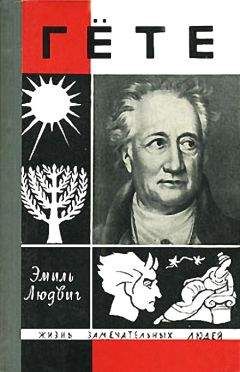Лори Шапира - Комплекс Кассандры. Современный взгляд на истерию

Помощь проекту
Комплекс Кассандры. Современный взгляд на истерию читать книгу онлайн
8
Flaceliere, Greek Oracles, рз. 41–42.
9
М. Esther Harding, Woman's Mysteries, p. 125
10
Cassandra, p. 293.
11
Там же, ее. 280, 327.
12
Там же, р. 80.
13
The Cults of the Greek States, vol. 4., pp. 112–113, 123–124, 140.
14
The Cults of the Greek States, vol. 4, pp. 112–113, 123–124, 140.
15
Soranus — прозвище Аполлона, почитавшегося под этим именем на вершине живописной горы Соракты близ древнего города Фалерий. Слово Soranus, вероятно, родственно слову sol (солнце) и указывает на солнечный характер бога. Культ Аполлона С. связан с вулканической природой горы Соракты. Впоследствии его стали отожествлять с Плутоном, богом подземного царства
16
Apollo, p. 56
17
Ibid, p. 39, quoting The Iliad, line 44 (Гомер. Илиада, стр. 6, строки 44–52).
18
The Homeric Gods, p. 65
19
Themis, A Study of the Social Origins of Greek Religion, p. 502.
20
Farnell, Cults of the Greek States, p. 173
21
Flaceliere, Greek Oracles, p. 38
22
Эсхил. Эвмениды, строки 1–9 (с. 323).
23
Flaceliere, Greek Oracles, p. 34–35.
24
The Encircled Serpent, pp. 139–142.
25
«The Delphic Oracle as a Therapist», pp. 113–114.
26
Ibid., р. 118.
27
The Greeks and the Irrational, p. 75.
28
Rollo May, The Courage to Create, pp. 114–115.
29
Graves, Greek Myths, vol, p. 82; Kerenyi, Apollo, p. 51.
30
Aeschylus, The Eumenides, introduction, pp. Vii, ix.
31
Aeschylus, The Eumenides, p. 308–319 (Эвмениды, строки 308–319, стр. 335–336).
32
Ibid., p. ix.
33
Ibid., lines 18–19.
34
Ibid., lines 179–185, 194–198 (Эвмениды, строки 179–185, 194–198., стр. 330).
35
Ibid., lines 162–166 (Эвмениды, строки 162–166, стр. 329)
36
Ibid., lines 737–740 (Эвмениды, стр. 352).
37
Ibid., lines 863–874 (Эвмениды, стр. 356–357).
38
Ibid., lines 1044–1047 (Эвмениды, стр. 362).
39
Ibid., lines 816–819 (Эвмениды, стр. 355).
40
Envy and Gratitude, p. 85. Мальчик с инвертированным эдиповым комплексом переживает негативные эмоции по отношению к своей матери и сильное влечение к своему отцу. Поскольку такой эдипов конфликт становится слишком опасным, мальчик защищается от агрессии, идентифицируясь с женственностью.
41
Aeschylus, The Eumenides, lines 670–672. (Эвмениды, стр. 349).
42
Hillman, Myth of Analysis, p. 219.
43
Kerenyi, Apollo, pp. 16–18. (Приводит цитату из «Энеиды» Вергилия).
44
The Sybil, pp. 137–138.
45
См. Erich Neumann, The Great Mother, pp. 292–296.
46
Greek Myths, vol. 2, p. 263.
47
Wolf, Cassandra, p. 293 (см. также Marion Zimmer Bradley, Fireland).
48
Cassandra, p. 37.
49
Graves, Greek Mythes, vol. 2, p. 341.
50
Wolf, Cassandra,p. 12.
51
Ibid., p. 41.
52
Ibid., p. 13.
53
Ibid., p. 50.
54
Ibid., p. 103.
55
Aeschylus, The Agamemnon, lines 954–959.
56
Aeschylus, The Orestes Plays, p. 87 (Орестея, строки 1498–1506, с. 268).
57
Envy and Gratitude, pp. 284–285.
58
Cassandra, р. 60.
59
Aeschylus, The Agamemnon, lines 940–941 (Агамемнон, строки 940–941, с. 246),
60
Aeschylus, The Eumenides, lines 719–720 (Эвмениды, с. 351).
61
Veith, Hysteria, p. 3.
62
Ibid.
63
Ibid.
64
Hillman, Myth of Analysis, p. 253, quoting Plato's Timaeus, 91 c.
65
Veith, Hysteria, p. 43.
66
Ibid., p. 49.
67
Ibid., p. 56.
68
Ibid., p. 59.
69
Ibid., p. 61, quoting Kramer and Sprenger, The Malleus Maleficarum, trans. Motague Summers (London: Pushkin Press, 1951), p. 21.
70
Ibid., p. 63–64., quoting Malleus Maleficarum
71
Ibid., p. 59.
72
Ibid., p. 105., quoting Paracelsus, On the Diseases that Deprive Man of His Reason Basel, 1567).
73
Ibid., pp. 107–108., quoting Rabelais, Pantagruel, in The Portable Rabelais, trans. Samuel Putnam (New York: Viking Press, 1946), pp. 477–478. (Франсуа Рабле. Гаргантюа и Пантагрюэль. М., 1991, с. 374).
74
Ibid., pp. 121–122., quoting Jorden, A Briefe Discourse of a Disease called the Suffocation of the Mother (London: John Windet, 1603), chapter 2, p. 5 (italics in original).
75
Ibid.
76
Myth of Analysis, p. 254.
77
Ibid., quoting Fisher-Homberger, «Hysterie und Misogynie» (dissertation, University of Zurich).
78
Veith, Hysteria, p. 130, quoting William Harvey. On Parturtion; in the Works of William Harvey, M.D., trans. Robert Willis (London: Sydenham Society, 1847), p. 54.
79
Ibid., p. 179., quoting Philippe Pinel, Nosographie philosophique ou la methode de. I'analyse applique a la medicine (5th ed.; Paris: J.A. Brosson, 1813), p. 285.
80
Ibid., pp. 201–202., quoting Robert Carter, On the Pathology and Treatment of Hysteria (London: John Churchill, 1853), pp. 34-35
81
Ibid., p. 203.
82
Ibid., p. 197, quoting Wilhelm Griesinger, Mental Pathology and Therapeutics, trans. C.L. Robertson and J. Rutherford (London: New Sydenham Society, 1867), p. 201.
83
Hillman, Myth of Analysis, p. 256, quoting Griesinger.
84
Veith, Hysteria, p. 211, quoting essay by Falret, «Folie raisonnante ou folie morale,» in Etudes diniques sur les maladies mentales et nerveuses (Paris: Librarie et Fils, 1890), p. 502.
85
Ibid., pp. 222–223.
86
Ibid., pp. 224.
87
Ibid., pp. 225–226, quoting James Braid, Neurypnology; Or the Rationale of Nervous Sleep, Considered in Relation with Animal Magnetism (London: J. Churchill, 1843).
88
Ibid., p. 239.
89
Ibid., pp. 235–236, quoting Charcot, «Isolation in the Treatment of Hysteria», in Clinical Lectures on Diseases of Nervous System, trans. Thomas Savill (London: New Sydenham Society, 1889), p. 210.
90
Ibid., p. 252, quoting Janet, The Mental State of Hystericals, p. 412.
91
Ibid., p. 250, quoting Janet, p. 215.
92
Ibid., p. 255, quoting J. Babinski and J. Froment, Hysteria or Pithiatism and Reflex Nervous Disorders in the Neurology of War (London: University of London Press, 1918).
93
Larousse, p. 118.
94
Veith, Hysteria, p. 261.
95
Ibid., p. 265, quoting Freud, An Antropological Study, trans. James Strachey (London: Hogarth Press, 1946), p. 41.
96
Ibid., quoting Freud, p. 42.
97
Hysteria, pp. 273–274.
98
Diagnostic and Statistical Manual of Mental Disorders (DSM II), p. 39.
99
Ibid., p. 43. В DSM-III теперь диагноз истерии попал в категории «Соматорормные и диссоциативные неврозы» и «Истерическое расстройство личности».
100
«Psychoanalytic Psychotherapy with Borderline and Narcissistic Patients»
101
Neurotic Styles, chapter 4.
102
Psychological Types, CW 6, pars. 597–600.
103
Myth of Analysis, p. 252.
104
Ibid.
105
Ibid, p. 225.
106
Hysteria, p. viii.
107
Ibid.
108
См. выше.
109
«Оп Hysteria: The Mythical Syndrome», p. 153.
110
Toni Wolff, «Structural Forms of the Feminine Psyche», pp. 9-10. Средняя женщина — одна из четырех типов, описанных Вульф; остальные три — мать, гетера и амазонка. Статью Вульф нелегко достать вне библиотеки Института Юнга, однако краткое содержание ее модели можно найти в книге: Donald Lee Williams, Border Crossings
111
Cassandra, p. 59.
112
Flaceliere, Greek Oracles, p. 36.)
113
Hillman, Myth of Analysis, p. 253.
114
Veith, Hysteria, p. 130, quoting Harvey, On Parturition, p. 543.
115
![Никита [ИАКИНФ] Бичурин - СТАТИСТИЧЕСКОЕ ОПИСАНИЕ Китайской империи](/uploads/posts/books/no-image.jpg)























